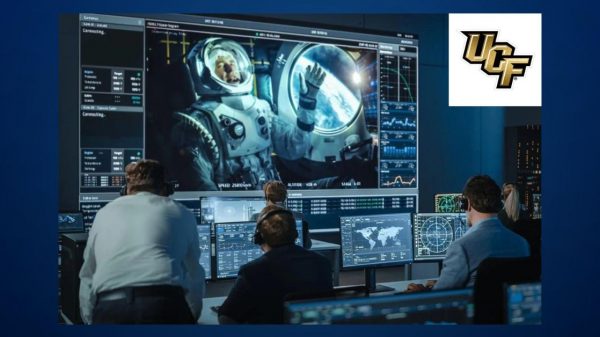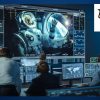At the end of last week, Florida A&M University (FAMU) announced it has received $1.2 million from NASA to recruit more African American students to pursue careers in aerospace engineering.
According to the grant proposal, FAMU will establish a multi-institution coalition to recruit underrepresented minorities (URMs) for a program that will give hands-on experience to students in NASA-relevant fields. FAMU is one of three Historically Black Colleges and Universities (HBCUs) selected to participate.
In addition to FAMU, the coalition includes the University of Central Florida (UCF), Florida State University (FSU), the Air Force Research Laboratory (AFRL), and four NASA centers. FAMU was awarded $1,199,977.00 as a three-year budget for its proposal to NASA’s Minority University Research and Education Project (MUREP).
“This award will enable us to train a new generation of underrepresented students in the fast-growing and very Florida-relevant field of aerospace engineering,” Carl Moore, Ph.D., an associate professor in the FAMU-FSU College of Engineering, a co-principal investigator of the project.
The Broadening Participation of Next Generation Aerospace Engineers (BP-AE) Through Traineeship and Workforce Development Program proposes the establishment of a multi-institution coalition to recruit URMs for a coordinated educational and professional enhancement program involving design projects, undergraduate research experiences, professional traineeship, advanced research, and career development activities in NASA-relevant fields.
Senior mechanical engineering student Zachary Barnes works on his senior design project, Psyche Xenon Controller, testing at NASA/Marshall Space Flight Center in Huntsville, AL.
Senior mechanical engineering student Zachary Barnes works on his senior design project, Psyche Xenon Controller, testing at NASA/Marshall Space Flight Center in Huntsville, AL.
While the U.S. aerospace and defense industry has traditionally been among the top career choices for engineering students, African Americans have been significantly underrepresented, receiving about 3 percent in bachelor of science degrees and 1 percent in advanced degrees in either aerospace or mechanical engineering according to a recent National Science Foundation database, said Co-Principal Investigator Professor Chiang Shih, Ph.D., chairman of the FAMU-FSU College of Engineering Mechanical Engineering Department.
“The proposed BP-AE program focuses on diversity inclusion, engaging students through streamlined recruitment, project-based learning, traineeship, and workforce development program on aerospace-focused topics,” Shih said. “We will build a long-term partnership with all stakeholders to create a culture of inclusion resulting in our students being successfully mentored, trained, and developed into the next generation of aerospace engineers.”
The BP-AE coalition will recruit motivated URM students by providing coordinated training and professional development activities. The collaborative partnership by AFRL and NASA centers will provide professional mentorship and real-world experiences needed to prepare for their future careers while addressing the shortage of URM in the aerospace-centric workforce, Shih added.
“With the proposed program, we expect to recruit and train 40 BP-AE Fellows – nine graduate students and 31 undergraduate students – for the duration of the three-year grant,” said Shih, who is also director of the FAMU-FSU College of Engineering’s Aero-propulsion, Mechatronics and Energy (AME) Center.
Each year, recruitment events will be conducted internally within the BP-AE institutions and externally engaging on allied Minority Serving Institutions. The professional development program will comprise of four interconnected activities coordinated with collaborators designed to engage engineering students early and implement during their academic careers through sustained mentorship and workforce development, NASA said in the announcement.
These activities include a senior capstone design project sponsorship; summer research and professional development for undergraduate students; MS Traineeship degree integrating internship and project mentorship; and co-advising graduate students’ research projects with AFRL and NASA collaborators.
Other HBCUs awarded NASA grants are Alabama State University and J. F. Drake State Technical College in Huntsville, Ala.















